News
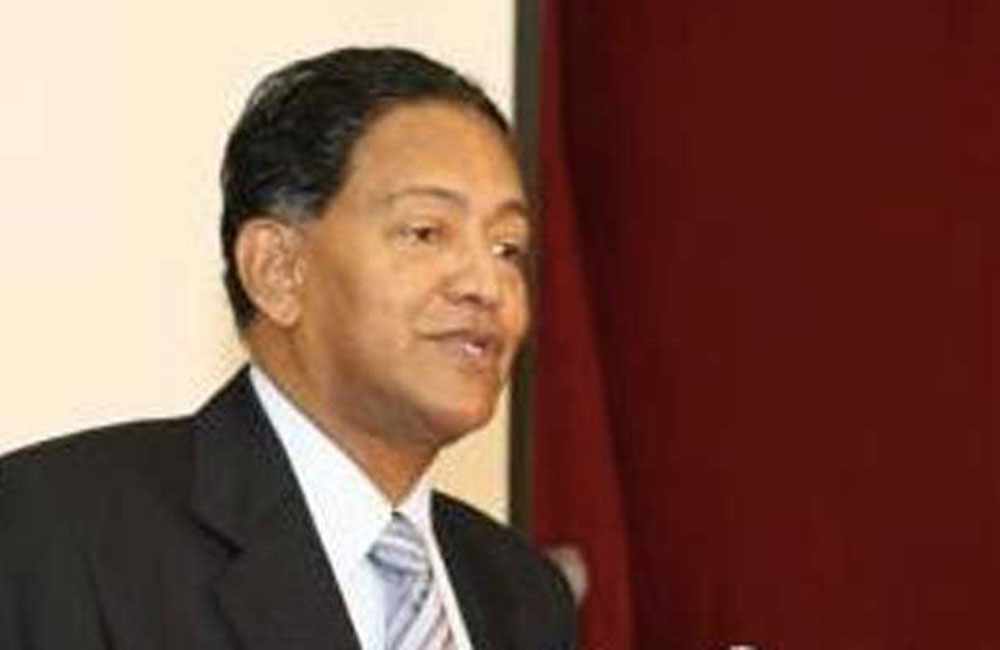
Immunity not to President's actions: K. Kanag-Iswaran PC
President’s Counsel K. Kanag Iswaran yesterday countering the arguments of the respondents and the intervernient petitioners underlined the fact that the immunity conferred on the Executive President was only on his person and not on his acts or actions.
Kanag Iswaran PC appearing for TNA Leader R. Sampanthan said this before the seven-judge bench of the Supreme Court which took up for hearing the fundamental rights petitions against the dissolution of Parliament by President.
Ten fundamental rights petitions against the dissolution of Parliament came up before the Bench comprising Chief Justice Nalin Perera, Justices Buwaneka Aluwihare, Sisira J de Abrew, Priyantha Jayawardena, Prasanna S. Jayawardena, Vijith K. Malalgoda and Murdu Fernando.
Kanag Iswaran PC said he did not propose to deal with the jungle of arguments of single instances put forward by the various respondents, on account of time constraints.
He said President’s Counsel Sanjeewa Jayawardene and the other Counsel of a similar persuasion had sought to submit to Court their interpretation of the relevant constitutional provisions on the basis of the Sinhala text of the Constitution.
Counsel said not being competent in that language, he had requested President’s Counsel Thilak Marapana and the other Counsel for the petitioners, to deal with that aspect. He informed Court that they assured him that the Sinhala version was in no way different to the English version and that he knew for a fact that the Tamil version was no different either.
He said therefore, he was responding to only the Attorney General in respect of his submissions, principally on the question of the jurisdiction of the Supreme Court to hear and determine his petition on the two grounds urged by the Attorney General, namely,
“The provisions of Article 38 (2) provide a specific mechanism ‘for the Supreme Court to exercise jurisdiction over allegations of, intentional violations of the Constitution, misconduct or abuse of power by the President;
“Dissolution of Parliament by the President, does not constitute ‘executive or administrative action’, falling within the purview of Article 126 of the Constitution.
He said the objection premised on Article 38 (2) was concerned and that it was clear that the said objection was based on the supposition that Article 38 (2) operates as an ouster of Articles 17 and 126 vis-à-vis the Fundamental Rights Jurisdiction of the Supreme Court.
Counsel said one section of the Constitution could not oust another section of the Constitution.
The Constitutional jurisdiction of the Supreme Court to grant relief for the infringement of Fundamental Rights by the Executive or Administrative action could not be ousted in the absence of a Constitutionally or valid derogation from that jurisdiction he pinpointed.
He said Ex facie the Constitution such an ouster cannot be validly asserted.
He brought to cognizance that a total ouster is found in the interpretation section of the Constitution, namely, Article 154J (2) – Public Security.
He said the said interpretation section reads as, “A Proclamation under the Public Security Ordinance or the law for the time being relating to public security, shall be conclusive for all purposes and shall not be questioned in any Court, and no Court or Tribunal shall inquire into, or pronounce on, or in any manner call in question, such Proclamation, the grounds for the making thereof, or the existence of those grounds or any direction given under this Article.”
He submitted that the Article 170, defining a judicial officer as “ ‘judicial officer’ means any person who holds office as a Judge of the Supreme Court or a Judge of the Court of Appeal; any Judge of the High Court or any Judge, presiding officer or member of any other Court of First Instance, tribunal or institution created and established for the administration of Justice or for the adjudication of any labour or other dispute but does not include a person who performs arbitrary functions or a public officer whose principal duty or duties is or are not the performance of functions of a judicial nature. No court or tribunal or institution shall have jurisdiction to determine the question whether a person is a judicial officer within the meaning of the Constitution but such question shall be determined by the Judicial Service Commission whose decision thereon shall be final and conclusive. No act of such person or proceeding held before such person, prior to such determination, shall be, deemed to be invalid by reason of such determination.”
Kanag Iswaran PC said the above ouster clauses seek to even exclude the Fundamental Rights jurisdiction of the Supreme Court and maintained that therefore, Article 38 is no ouster at all.
He said the petitioner is well within his rights to have invoked Articles 17 and 126 of the Constitution, because it is an acknowledged principle of law that there is no justification in law for holding that only one of the available remedies can be availed of and that the other consequently stands extinguished, nor can it be contended that the aggrieved party be confined to only one remedy.
He further said that passionate presentations were made on the question of the sovereignty of the People and the franchise of the People and the obligation of the President to heed that and for the Supreme Court to take note of that fact.
He mentioned that in passing that, the sovereignty of the People and who the depositories of that are is to be seen in Article 4 and that the Article 4 (a) provides that the sovereign legislative power of the People is in the Parliament and that the Article 4 (b) provides that the sovereign executive power of the People is in the President.
He maintained that therefore under the Constitution that the President cannot interfere with the legislature except as strictly provided by the Constitution.
The dissolution of the legislature must therefore strictly be in terms of the Constitution and the President is not a Monarch, he too is a creature of the Constitution. It is settled law that the official acts of the President constitute ‘executive’ actions, he said.
He submitted that the concept of ‘executive and administrative’ action is much wider than executive power.
He stated the Petitioners invoked a right given to them under Article 17 read with Article 126 read together with the proviso to Article 35 (1).
In terms of the proviso ‘anything done or omitted to be done by the President, in his official capacity’ are in fact ‘executive or administrative’ acts in terms of Article 17 and, therefore, the reference to Article 126 is made in the said proviso, he stressed.
The contention of the Attorney General that the President’s act is not ‘executive or administrative’ action is in terms of the Constitution wholly untenable, he contended.
The issue of dissolution which the Supreme Court is called upon to decide is not justiciable because it is a political question, he claimed.
He recollected that another interesting, if not intriguing, submission was about a ‘legislative driven process’ and a ‘executive driven process’.
This description, curiously, lays emphasis only on the driver and forgets the vehicle, which is Article 70 (1), he said.
Without the vehicle, the driver cannot move. Whether legislative driven or executive driven, you need to have a Proclamation, he stated.
The functionaries of the three wings, namely, the legislature, the executive and the judiciary, derive their authority and jurisdiction from the Constitution. The Constitution is the fundamental document that provides for constitutionalism, constitutional governance and also sets out morality, norms and values which are inhered in various Articles and sometimes decipherable from the constitutional silence, he said.
Its inherent dynamism makes it organic and therefore the concept of constitutional sovereignty is sacrosanct. It is extremely sacred as the authorities get their powers from the Constitution and nowhere else. It is the source, that is the supremacy of the Constitution, he highlighted.
He reminded that passionate speeches had been made, mostly political, warning the Supreme Court of the impending dangers and the like if the dissolution is not upheld. It went as far as calling the challenge to the dissolution as terrorism, he said. He recall the words of Dr. Ambedkar: “I feel that the constitution is workable; it is flexible and it is strong enough to hold the country together both in peace time and in war time. Indeed if I may say so, if things go wrong under the new Constitution the reason will not be that we had a bad Constitution. What we will have to say is that Man was vile.”
There were 10 fundamental rights petition filed against the declaration of dissolution of Parliament by the President. Five sought to intervene to counter the main petitions.
Petitions seek a declaration that proclamation of dissolving Parliament infringes the fundamental rights.
They ask the Court for a declaration that the decisions and/or directions in the proclamation is null and void ab initio (ineffective from the beginning) and of no force or effect in law.
The petitions were filed by Kabir Hashim and Akila Viraj Kariyawasam of UNP, Lal Wijenayeke of United Left Front, CPA, Member of the Election Commission Prof. Ratnajeevan. H. Hoole, Attorney-at-Law G.C.T. Perera, Sri Lanka Muslim Congress, All Ceylon Makkal Congress, Mano Ganesan MP.
K.Kanag Iswaran PC, Thilak Marapana PC, Dr Jayampathi Wickremaratne PC, M.A.Sumanthiran PC. Viran Corea, Ikram Mohamed PC, J.C.Weliamuna PC, Ronald Perera PC, Hisbullah Hijaz and Suren Fernando appeared for the petitioners.
Gamini Marapane PC with Nalin Marapane, Sanjeeva Jayawardane PC and Ali Sabry PC appeared for the intervenient petitioners opposing the main petitions. (Daily Mirror)
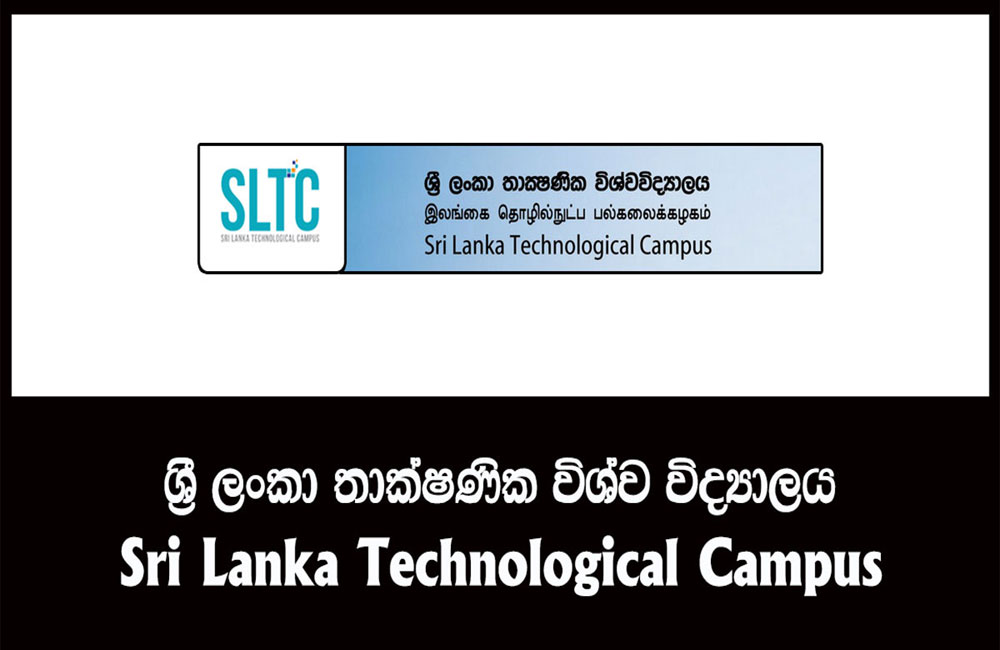
Sri Lanka Technological Campus inaugurates management programmes
The Sri Lanka Technological Campus (SLTC) affiliated to Sri Lanka Telecom (SLT) announced the launch of their management programmes offering multiple degree pathways.
These education avenues represent many disciplines including, Accounting and Finance, Marketing, Supply Chain Management, Human Resource Management, Operations Management, and Tourism and Hospitality Management. SLTC’s business school logo was unveiled at the Trace City Colombo 10 recently. SLTC also promises to engineer the professional impetus required for Sri Lanka’s evolving economic landscape by providing industry relevant, timely higher education opportunities to the country’s youth.
The SLTC has added this vital industry requirement to its portfolio of degree programmes to prepare Sri Lanka’s next generation, giving careful consideration to the economic growth direction of the county and upon a well thought through discussion process with industry leaders representing multiple spheres.
Thus, SLTC Business School was inaugurated with a vision of fulfilling an evolving future demand in numerous professional spheres and management disciplines. The SLTC at Padukka is a large university providing many facilities to its students.
The university is a fully owned subsidiary of the Sri Lanka Telecom. The university is equipped with a Tissue Culture Laboratory and a Fiber Optic Laboratory in addition to other facilities.
It is also linked to Microsoft and other international universities in USA, Australia, New Zealand and Vietnam.

More than half the global population now online: United Nations
Some 3.9 billion people are now using the Internet, meaning that for the first time more than half of the global population is online, the United Nations said Friday.The UN agency for Information and Communication Technologies (ITU) said that by the end of 2018 a full 51.2 percent of people around the world will be using the Internet.
“By the end of 2018, we will surpass the 50/50 milestone for Internet use,” ITU chief Houlin Zhou said in a statement.
“This represents an important step towards a more inclusive global information society,” he said, adding though that “far too many people around the world are still waiting to reap the benefits of the digital economy.”
He called for more support to “technology and business innovation so that the digital revolution leaves no one offline.” According to ITU, the world’s richest countries have been showing slow and steady growth in Internet use, which has risen from 51.3 percent of their populations in 2005 to 80.9 percent now. The gains have meanwhile been more dramatic in developing countries, where 45.3 percent of people are currently online, compared to just 7.7 percent 13 years ago.
Africa has experienced the strongest growth, with a more than 10-fold hike in the number of Internet users over the same period, from 2.1 percent to 24.4 percent, the ITU report showed.
The report also showed that while fixed-line telephone subscriptions continue to dwindle worldwide, to a current level of just 12.4 percent, the number of mobile-cellular telephone subscriptions is now greater than the global population. And it found that mobile broadband subscriptions have skyrocketed from just four subscriptions per 100 inhabitants in 2007 to 69.3 today.
There are currently a full 5.3 billion active mobile broadband subscriptions worldwide, ITU found. At the same time, the report said that nearly the entire world population, a full 96 percent, now lives within reach of a mobile cellular network, and 90 percent of people can access the Internet through a 3G or higher speed network.
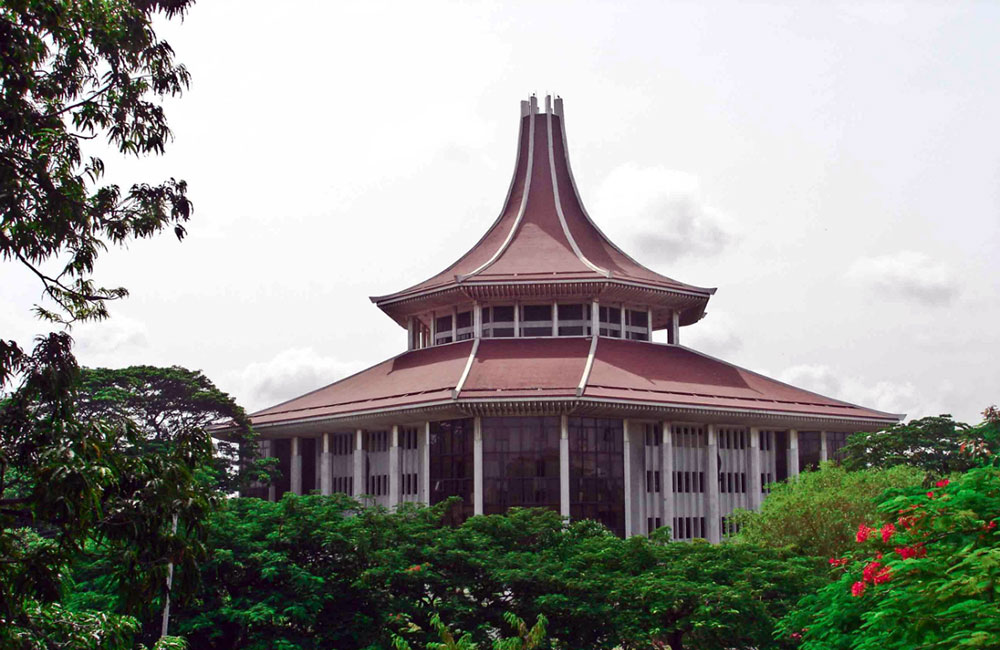
Supreme Court extends interim injunction till Dec 10
The Interim injunction order issued against the dissolution of Parliament by the Supreme Court has been extended till the 10th of December.
The seven-judge bench of the Supreme Court commenced hearing of the petitions challenging the dissolution of Parliament for the fourth consecutive day today.
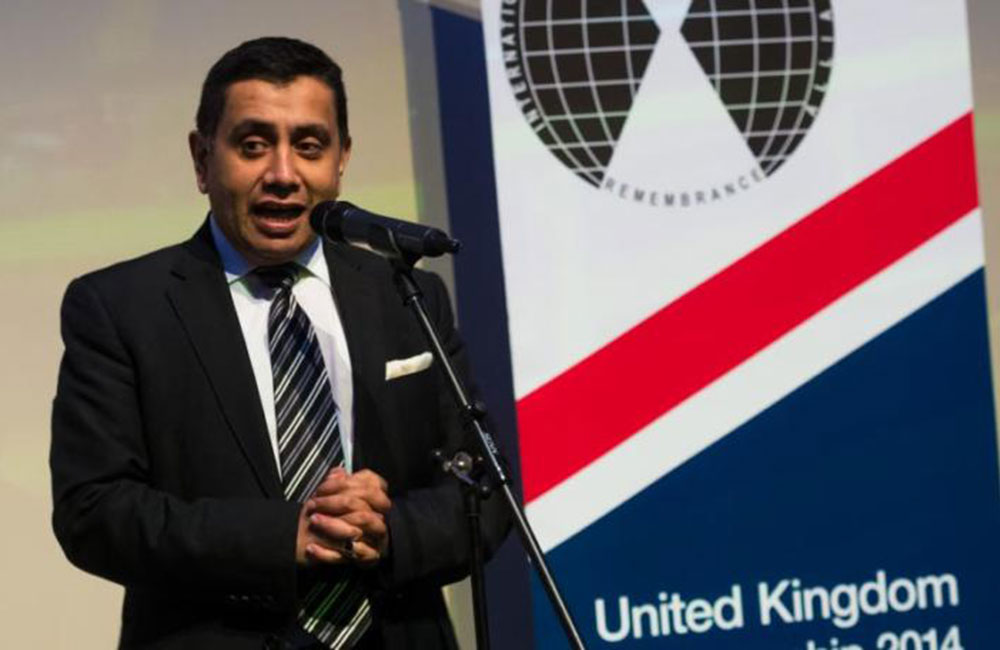
Sri Lanka need to uphold rule of law and good governance: UK State Minister
The United Kingdom said that they are closely monitoring developments in Sri Lanka and stressed on the need to protect the rule of law and good governance.
"The UK is following developments in Sri Lanka closely and is aware of the concern felt by many about the potential impact on human rights defenders. We have spoken to all parties about the need to protect and promote human rights, the rule of law and good governance," UK's Minister of State for Human Rights, Lord Ahmad presenting the interim statement on the human rights situation in 2018 in the Foreign and Commonwealth Office (FCO) said.
"We are in close touch with civil society representatives and international partners to ensure that we are ready to respond to a changing context, if necessary," he added.
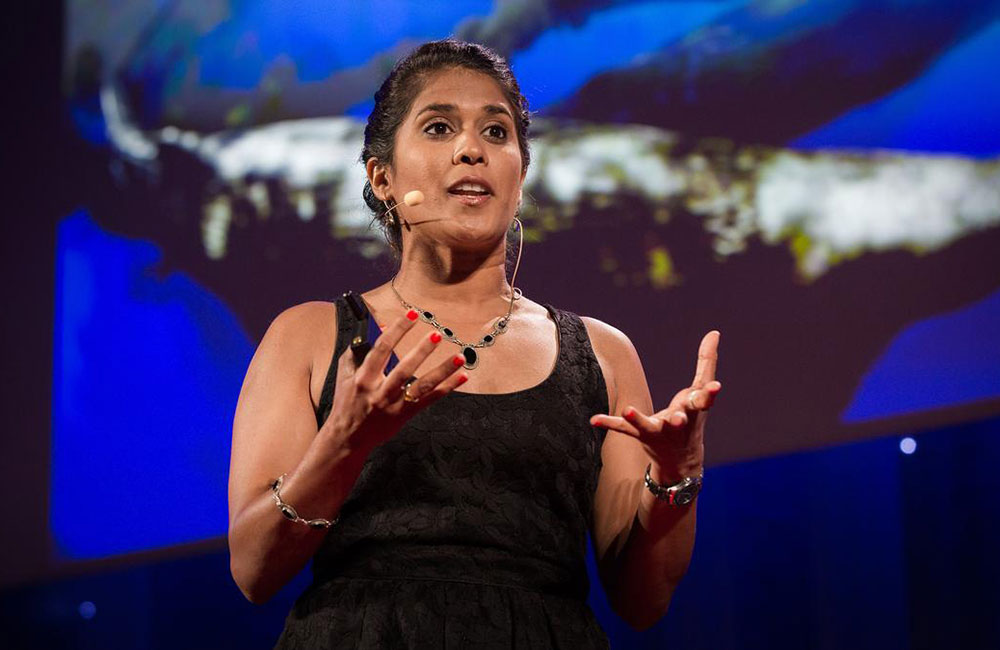
Dr Asha De Vos named 'Sri Lankan of the Year' by LMD
Sri Lankan marine biologist, ocean educator and pioneer of blue whale research in the northern Indian Ocea, Dr Asha de Vos has been named as the 'Sri Lankan of the Year' by LMD.De Vos holds a number of academic qualifications in her area of expertise, but bypassed academia to establish Oceanswell – Sri Lanka’s first marine conservation research and education nonprofit.
The Sri Lankan Blue Whale Project, which commenced in 2008, is the first long-term study on blue whales in this region – it is Oceanswell’s flagship project. The research conducted through this project has led to many key research publications, and is used to dictate policy at both local and global levels.
Oceanswell is engaged in ‘thinking big’ to solve challenges, mentoring to mobilise, conservation research, storytelling to save oceans and educating to empower.
De Vos travels across the world to ensure that the oceans of the global south have a voice on the international stage – and indeed, to increase awareness of the magic of what lies beneath them while also sharing her stories here in Sri Lanka.
In an interview with The Wiley Network earlier this year, she confessed to being “obsessively passionate” about sharing her ocean adventures and science with everyone. Moreover, de Vos emphasised the need to protect blue whales and that “there are ways to ensure that the economy of the country is not affected while also protecting this species that we use for our tourism industry.”
She was recently featured on the BBC 100 Women 2018, which is a list of inspiring and influential women from around the world.
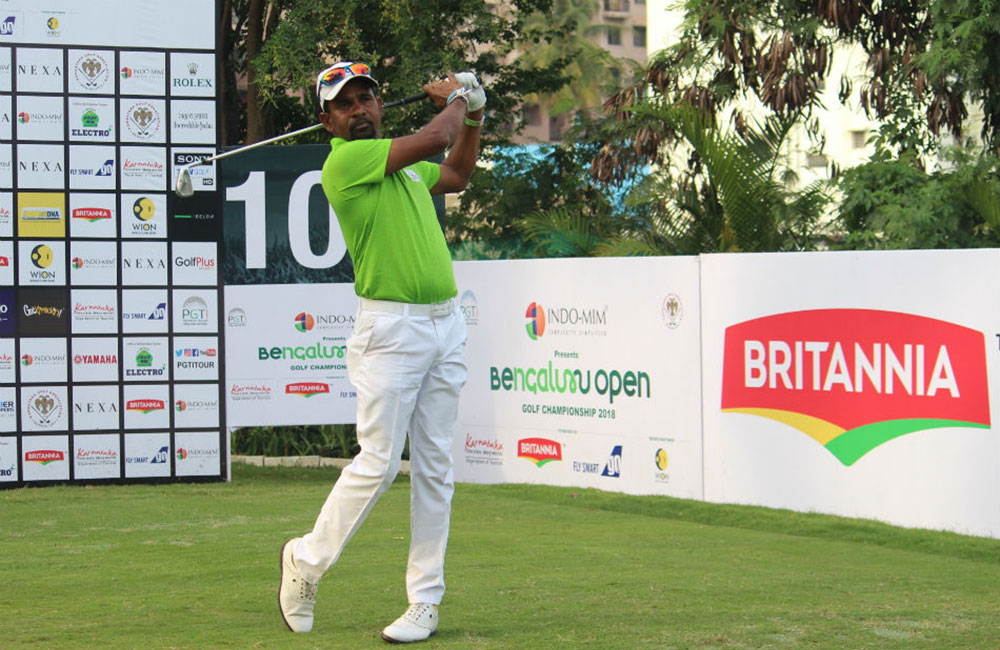
Sri Lanka’s Anura Rohana takes the lead at Bengaluru Open
Anura Rohana shot a sublime eight-under 64 as the PGTI regular from Sri Lanka took a three-shot lead in round two of Bengaluru Open Golf Championship 2018 on Friday.
The 45-year-old’s bogey-free effort in windy conditions in the latter half of the day took his 36-hole total to an imposing 13-under-131 at the Karnataka Golf Association (KGA) course.
Rohana (67-64), who began the day in fourth place and one off the lead, sizzled from the very start as he sank birdies on his first two holes, the 10th and 11th. Although he missed a number of short putts on the back-nine, Rohana did manage to pick up two more strokes on the 14th and 18th.
A winner of five titles including one at the KGA, the Lankan stepped on the gas on the front-nine picking up four more birdies. Rohana, who won his last title almost a year back, signed off with 2--feet birdie conversion on the ninth.
"I've won a PGTI event at the KGA back in 2011. So I know what it takes to win here. I've also shot a couple of six-under scores at this venue in the past. However, this is my best ever round at the KGA.
"I've not been playing well this year both on the Asian Tour and the PGTI so i know that I have make up for that. This week I have the opportunity to do so. When I began the week, my target was to shoot at least five-under on all days. So far, I'm on track. If I manage scores of five-under over the last two rounds, I will definitely take home the trophy," said the golfer who is currently 21st on the PGTI Order of Merit.
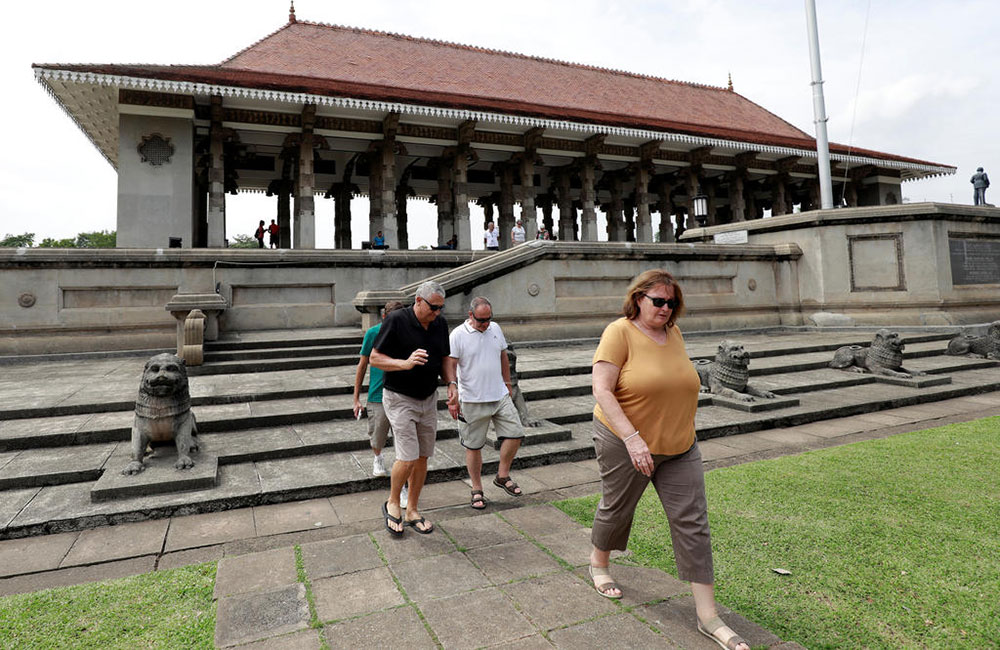
Sri Lanka's political crisis spurs tourists to cancel in peak season
Sri Lanka's travel industry is starting to suffer the fallout of a political crisis in the middle of its peak tourist season, as uncertainty prompts cancellations by both business and leisure visitors.
Tourism makes up about 5 percent of the Indian Ocean island's $87-billion economy, but the president's sacking of the prime minister late in October triggered a crisis that credit rating agencies say has already hit economic prospects.
"We have cancellations in the region of about 20 percent," said Chandra Mohotti, a manager at the luxury Galle Face Hotel in the capital, Colombo, which has about 200 rooms.
"Normally our hotel would be full. We are offering discounts because of the fear that allocations will not be utilized."
Peak season for holidaymakers from Europe, a major source of tourists, along with India and China, typically runs from December to March.
But numerous flight bookings have been canceled, especially from Europe, a source at national carrier SriLankan Airlines told Reuters.
"The crisis started just when tourists take a decision where to go," said the source, who declined to be named. "(It) has discouraged many of them."
Mahinda Rajapaksa, who replaced Ranil Wickremesinghe as prime minister, lacks a parliamentary majority and has been prevented by a court from holding office, delaying the 2019 budget and leading to violent scenes in parliament.
It may be a while before the cancellations show up in arrivals figures, however. Tourist numbers were up 16.8 percent in November on the year, official data showed on Thursday, with visitors from Europe up 37 percent, although numbers from China, Japan, the Middle East, and Southeast Asia all fell.
Last year, more than 2.1 million people visited Sri Lanka, tourism authorities say.
Business travel has also been hit by the crisis, with firms moving meetings to elsewhere in Southeast Asia.
"There have been some cancellations and some have shifted to Singapore and Indonesia," said Sanath Ukwatte, president of the Hotels Association of Sri Lanka, adding that conference and exhibition bookings were the worst hit.
Harith Perera, president of the Sri Lanka Association of Inbound Tour Operators, said he had also seen cancellations in the corporate sector.
"At the moment bookings have slowed down and that is a concern," he said. "If the current crisis drags on, then the impact will be significant. Cancellations are not only from European tourists, but from everywhere." REUTERS
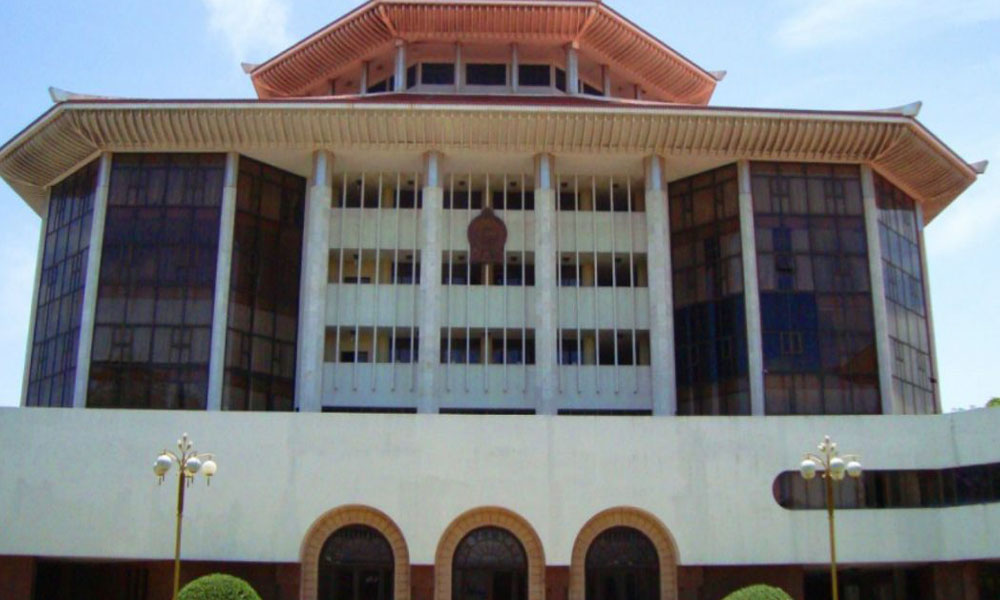
Supreme Court set to deliver historic verdict on Monday
Supreme Court on Friday reserved its verdict on a bunch of petitions against President Maithripala Sirisena’s controversial decisions to dissolve Parliament and call for a snap election after sacking prime minister Ranil Wickremesinghe that triggered a major constitutional crisis in the country.
The apex court heard 13 petitions for four days continuously and Friday’s hearing was one of the longest sittings of the Supreme Court in the recent history, lawyers said.
Sri Lanka has been in a political crisis since October 26 when Sirisena removed Wickremesinghe and installed former strongman Mahinda Rajapaksa in his place.
Sirisena later dissolved Parliament, almost 20 months before its term was to end, and ordered snap election. The Supreme Court overturned Sirisena’s decision to dissolve Parliament and halted the preparations for snap polls. It also issued an interim order on November 13 annulling the gazette notification which made Sirisena’s parliamentary sacking temporary illegal.
A total of 13 petitions were filed by political parties and civil society groups who claimed that Sirisena’s moves to sack Wickremesinghe and dissolve Parliament are in violation of the Constitution. A seven-member bench presided by Chief Justice Nalin Perera on Tuesday began hearing oral submissions on the fundamental rights petitions filed against Sirisena’s gazette notification to dissolve parliament.
The court on Friday extended its interim order till it decides on the legality of Sirisena’s move and reserved its judgement for an unspecified date.
Earlier this week, the Court of Appeal halted Rajapaksa and his Cabinet from functioning in their positions in response to a case filed by 122 legislators against the disputed government.
Both Wickremesinghe and Rajapaksa claim to be the prime ministers. Wickremesinghe says his dismissal is invalid because he still holds a majority in the 225-member Parliament.
Speaker Karu Jayasuriya has officially conveyed that the House does not recognise Rajapaksa as the legal prime minister until he proved his majority in the House.
The United National Front (UNF) coalition led by Wickremesinghe has moved three motions of no trust against Rajapaksa. However, he refused to step down. Prior to the crisis, the UNP had the backing of 106 parliamentarians, while Rajapaksa and Sirisena had 95 seats combined.
Rajapaksa has, so far, failed to prove his majority in Parliament.
Wickremesinghe, with the support from the main Tamil party, claims to have the support of more than 113 legislators, required for simple majority.
The Tamil National Alliance (TNA) has 16 seats in the house and JVP has six legislators.
Sirisena has said due to sharp personal differences with Wickremesinghe, he would not reappoint him as the prime minister.
However, the UNP claims that Sirisena will be left with no other choice as Wickremesinghe would be the man who will command the confidence in the House. Violent scenes were witnessed in Parliament as it went on to approve two no confidence motions which proved that Rajapaksa lacked majority.
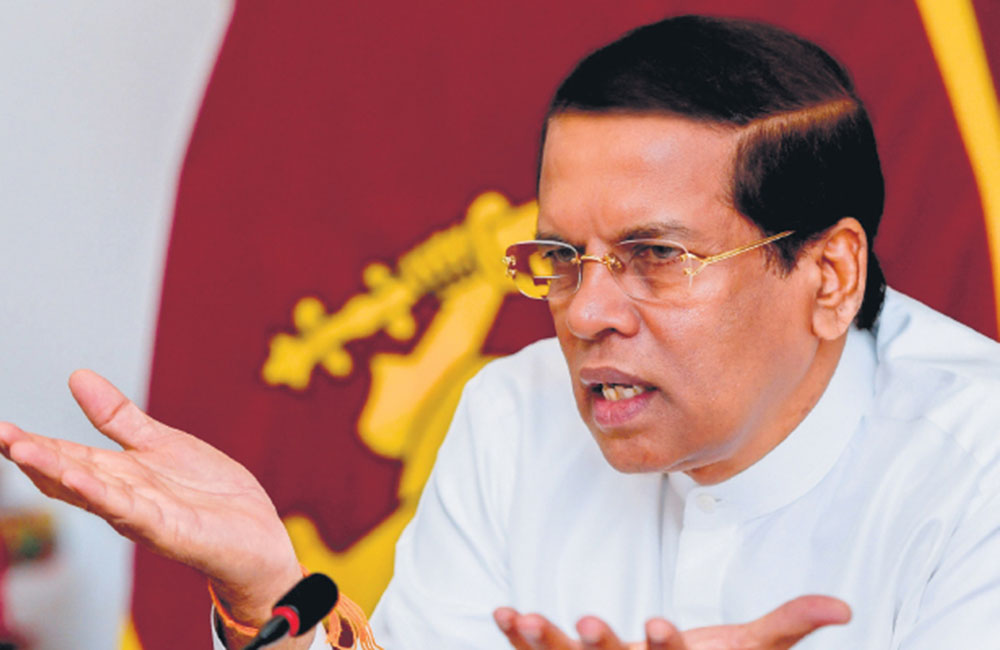
Sirisena says no state functions at luxury hotels after industry leaders decided to boycott tourism award ceremony
The government, under the instructions of president Maithripala Sirisena, has issued a circular to all ministries, departments and boards advising them to refrain from using luxury hotels for their events and meetings.
All state officials have been instructed yesterday to only organise state functions and meetings at auditoriums and institutions affiliated to the government.
However, this comes in the wake of many tourism industry leaders deciding to boycott the Sri Lanka Tourism Awards ceremony held yesterday, as President Maithripala Sirisena had been invited as the Chief Guest. Sirisena didn't attend the awards ceremony that was held at the Shangri-La Hotel in Colombo.
Tourism industry leaders had expressed their disgust at the Sri Lanka Tourism Development Authority (SLTDA) has invited Sirisena, the man who is responsible for ruining the tourism industry this year by engineering a constitutional coup and a political crisis, as the Chief Guest of the event.
Former Tourism Development Minister John Amaratunga MP participated in the ceremony organised by the SLTDA and presented a few awards at the start of the event.
Related News:
Tourism industry leaders to boycott event in protest of Sirisena

Depositors of Standard Credit and Finance to get compensation
Disgruntled depositors of The Standard Credit and Finance Ltd (TSCFL) are to be compensated under the Sri Lanka Deposit Insurance and Liquidity Support Scheme, the Central Bank announced on Friday (07).
Compensation payments will be made in line with the provisions of the Sri Lanka Deposit Insurance Regulations. Instructions on the application criteria will be notified through print and social media, the Central Bank added.
The depositors of the Standard Credit and Finance Ltd. have been informed to submit their duly completed claim forms along with the required documentation to the Resolution and Enforcement Department of the Central Bank once the notification is issued in the media in due course.
The license issued to the TSCFL to carry on finance business has been cancelled with effect from 25.07.2018 in terms of the provisions of the Finance Business Act No. 42 of 2011.
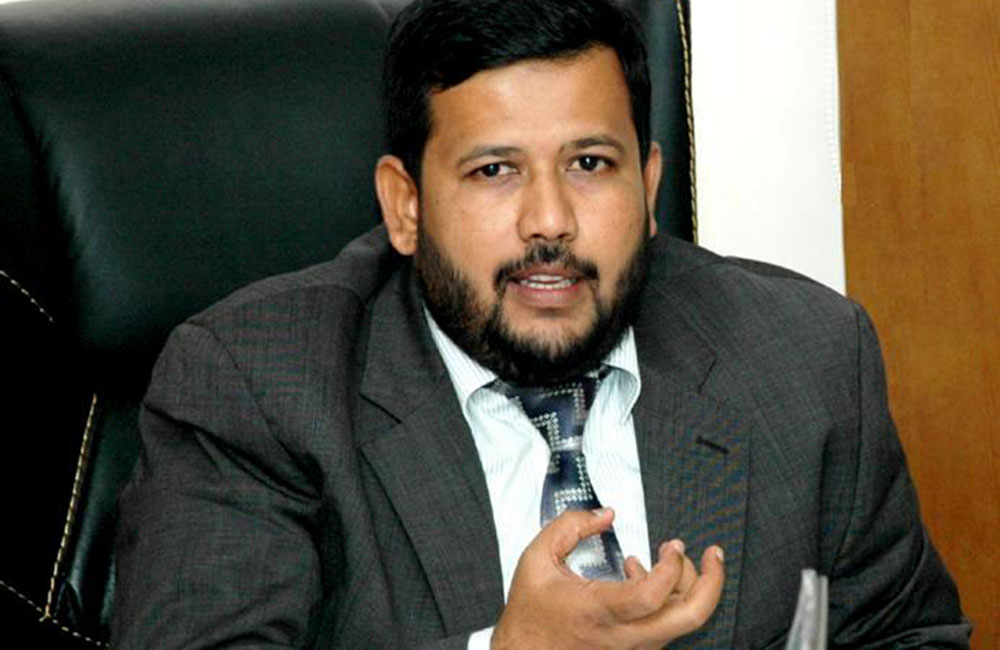
Baithiudeen's security under threat?
Leader of the All Ceylon Makkal Congress (ACMC) Rishad Bathiudeen appeared before the Criminal Investigations Department today yesterday to make a complaint regarding a controversial statement made by the Operations Director of the Anti-Corruption Front, Namal Kumara.
Namal Kumara had earlier stated that there was an attempt to assassinate ACMC leader Rishad Bathiudeen in addition to the alleged assassination plot on several VIPs including president Maithripala Sirisena.
Speaking to media outside the CID premises, Bathiudeen said that he is perplexed as to why his security was completely withdrawn when inquiries about a potential assassination plot against him are underway.
Page 375 of 532